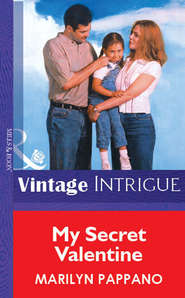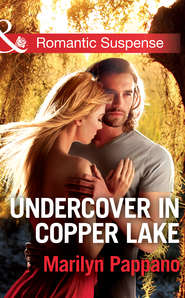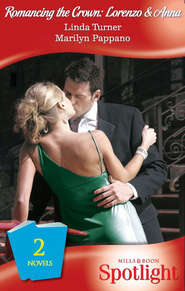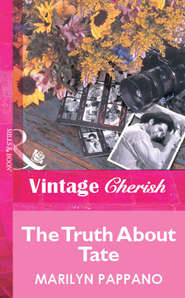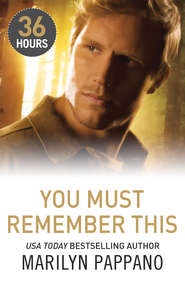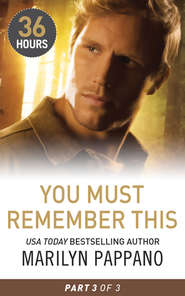По всем вопросам обращайтесь на: info@litportal.ru
(©) 2003-2025.
✖
Copper Lake Confidential
Автор
Год написания книги
2018
Настройки чтения
Размер шрифта
Высота строк
Поля
“We lived with him, Anamaria. I lived with him, I shared a bed with him, I was married to him for seven years. And all that time I never had a clue that he was…”
Even now it was hard to say: he was a remorseless cold-blooded killer. The husband she’d loved so much, who’d been such a doting father, had beaten strangers to death and buried them on his grandparents’ property right outside town. And to make his evil even worse, he’d learned the skill from his grandfather.
The blood of serial killers ran through her daughter’s veins.
Shuddering despite the warm afternoon sun, she hugged herself tightly. “I should have known. I should have suspected something.”
“Are you psychic now?”
Her gaze cut sharply to Anamaria, who was watching her closely, but not in the same way her family did. They were looking for signs that the depression was returning, the weakness overtaking her, the instability gaining control. They didn’t understand how difficult it was when her every move was scrutinized: Is this the action, the thought, the comment of a sane person? Is she rational, merely emotional or sinking back into the abyss?
But there was nothing measuring or judging about Anamaria’s gaze. A simple question, a simple look.
“No, I’m not psychic. But I should have…”
“Mark and his grandfather were very good at hiding their secrets. You couldn’t have known unless he wanted you to.”
Macy breathed deeply. That was what the psychiatrists, the psychologists and even some of the other patients in group therapy had told her. Somehow it sounded more convincing coming from a woman with the gift of sight.
“What are your plans now?”
Macy’s laugh was rusty. She probably hadn’t used it more than a half dozen times in the past eighteen months. “I don’t suppose you could tell me.”
After a moment, Anamaria took her hand in both of hers, her expression growing distant, as if watching a scene no one else could see. “Everything’s going to be all right in the end,” she said at last. “If it’s not all right now, then this isn’t the end. It’ll come, Macy. One day you’re going to realize that you and Clary are better than ever.”
They were just words, but Macy knew words had power. Words had destroyed every illusion she’d ever had, and now they gave her, if not peace, at least a little hope. She did find them hard to believe, but she could embrace the possibility. She could believe that sometime in the not-too-distant future, her life would be good again.
She had to believe it.
Or there was no reason to continue living.
Chapter 2
In need of a break, Stephen saved his file to the hard drive, then emailed it to himself. It also went automatically to an online storage account, too, but, hey, a guy could never be too careful. Sometimes the old saying “Writing is easy; just sit down and open a vein” was too true. When words were hard to come by, he didn’t risk losing any of them.
He stood and stretched, joints popping, before walking to the front door. “Wanna go for a walk?”
Scooter glanced up from his place on the couch, yawned and settled in deeper. Eat, sleep, play—that was his routine.
“Next life I’m coming back as a dog,” Stephen muttered as he went out and locked up behind him.
The spring air was warm, the sun shining. He’d done cold for four years, getting his degree at Oklahoma State University Center for Veterinary Health Sciences, then another winter in Cheyenne, Wyoming. He’d be happy if he never saw snow or subzero temperatures again.
Hands shoved in his hip pockets, he turned north and walked to the end of the road, past each of the three neighboring houses. Elderly sisters and their husbands lived in the first two, and he called hello to them, the sisters sitting on one porch, the husbands swapping stories on the second. The last house was occupied by a great-grandson or -nephew who drove an eighteen-wheeler and was gone more often than not. Stephen hadn’t seen him five times in the months he’d lived there.
When the road ended just past the third house, he considered taking the path that led into the pine woods, eventually reaching Holigan Creek, where he’d found a shady spot that was great for kicking back. Instead, he turned and went back the way he’d come, speaking to the old folks again, passing his own house, heading for the Woodhaven gates.
He wasn’t athletic. The closest he’d ever come to a team sport was online fantasy games with players around the world, and the only weights he’d ever lifted had been in the form of dogs, cats and various body parts of horses or cows. But he liked to walk. It cleared his head and freed his subconscious to work on the current book without his conscious self having to take part. It was one of the best perks of writing.
The Ancients knew there wasn’t a lot of money in it, not for a midlist fantasy author. But he loved it, and his audience was building with each title. An author couldn’t ask for much more.
Though the New York Times bestseller list would be nice.
His intent was to turn around at the gates, return home and shoot for another thousand words before his muse gave out, but movement just past the gate caught his attention. A minivan—the name didn’t do the luxury vehicle justice—was parked in the driveway of the first house on the left, its hatch open, and the woman he’d met thanks to Scooter was wrestling out a bundle of flat boxes bigger than she was.
He went to help her because his mama didn’t raise him to ignore someone in need of assistance. That was the only reason. Her being pretty in a skittish-mare sort of way, with brown eyes that dominated her face and porcelain skin that Scarlett O’Hara would have killed for, had nothing to do with it.
“Here, let me give you a—”
Before he could say hand, she whirled around. The boxes fell to the ground, one sharp edge landing on her sandaled foot, and she stumbled back against the van, mouth open in a silent gasp, eyes huge.
“Sorry. I didn’t mean to startle you.” He wasn’t exactly known for quiet grace. Size-thirteen feet were never stealthy, and he tended to scuff his shoe soles when he was thinking about something. But, judging by the paleness of her already-pale skin, Macy Howard had been preoccupied, too.
“I—I—” Her hands fluttered and a shiver passed through her, reminding him of a parrot he’d once treated. He still bore the scars on his left arm. “I’m sorry. I wasn’t paying attention.”
Never apologize. That was the First Rule in his protagonist Lucan’s life. One of these days Lucan would have to break that rule—if he didn’t, Sa’arca would rip his heart out; Warrior Women were funny that way. “You’re entitled to not pay attention.” He picked up the bundle, not much heavier than Scooter and not nearly as unwieldy. “Where you do want these?”
A little pink returned to her face, but she still looked as if she might bolt any second. “In the garage, please.”
The garage was big enough for three vehicles and so clean that his house looked like a pigsty in comparison. The walls were painted tan, and the floor was surfaced with some sort of grit in a darker shade. A worktable against one wall held the same collection of tools he had at home: screwdrivers in various sizes, a hammer, a few wrenches, a pair of pliers. Along with athletic, he wasn’t exactly mechanical, either.
A lawn mower, an edger, a trimmer and a plastic cart were gathered in one corner, all well-used, unlike the tools. Rakes and shovels hung on hooks on the wall; a shelf held motor oil, extra trimmer line, paper towels and paper leaf bags. The rest of the space was empty.
He rested the boxes against the wall near the door into the house. “Are you moving out?”
“I’ve already done that.” She deposited two giant rolls of Bubble Wrap nearby, then managed a weak smile. “I’m sorting through things. Deciding what to keep and what to get rid of.”
“Where do you live now?”
She hesitated. Unsure whether to tell him? After all, they were strangers. Then, with a lack of grace that wasn’t normal for anyone who could afford a house in Woodhaven Villas, she gestured. “I don’t actually live anywhere right now.”
Interesting answer. Ranked right up there with her blank look when he’d asked what she did earlier. Maybe she really was Macy Howard and this really was her house, or maybe she wasn’t and it wasn’t. It wouldn’t hurt to ask Marnie.
She pushed her hand through her hair, dislodging the suede band that kept it from her face. “I’ve been staying with my parents in Charleston. It’s time to get a place of my own. To move on. I just haven’t decided where.”
“Not in Copper Lake, huh?”
An expression of distaste crossed her face fleetingly. If he hadn’t made a habit of studying people since he decided he was a writer, he would have missed it. “Preferably not.” She left the garage to gather more packing materials, and he followed.
He’d never made a move where he hadn’t underestimated how many boxes and rolls of wrapping paper he needed, but that didn’t seem a possibility with Macy. Cartons and materials filled the minivan, with the exception of the driver’s seat. Even the passenger seat was filled with thick slabs of paper and rolls of tape.
Already moved out. Packing up stuff. No wedding ring. Staying with her parents. He was guessing there was a very unhappy divorce in her recent past. Not that he could really imagine any other kind of divorce. He’d heard urban myths about friendly ex-spouses making a better go as friends and coparents than as husband and wife, but he hadn’t witnessed the phenomena himself. His mom’s divorces—from the husband who had produced Marnie, then from his dad—had left her soured on men in general. His own divorce had involved as much fighting as the marriage, and they’d had precious little to fight over.
But there was no polite way to ask where her ex was while she sorted through and packed up their house, no matter how curious he was. Instead, he returned to the van for the next load.
Within minutes, the vehicle was empty and one bay of the garage had pretty much disappeared under the supplies. After setting down the last bundle of boxes, he shoved his hands into his pockets and rocked back on his heels, seeking something to say.
“Well.”






